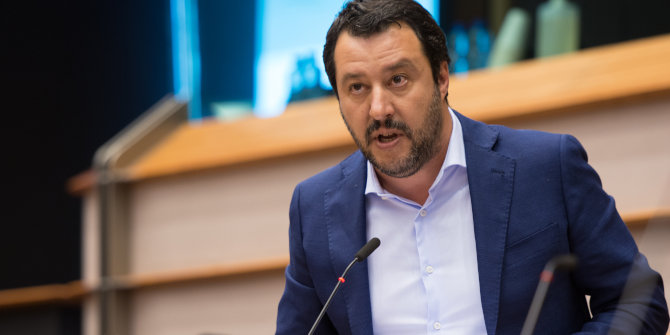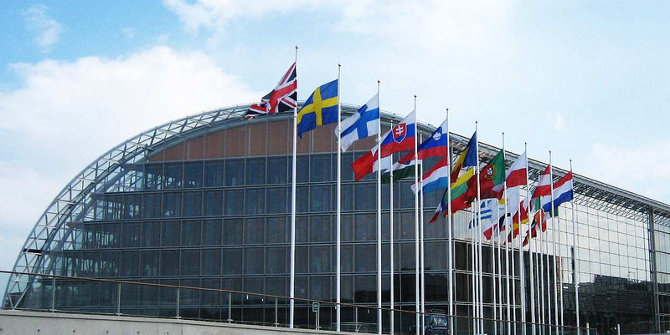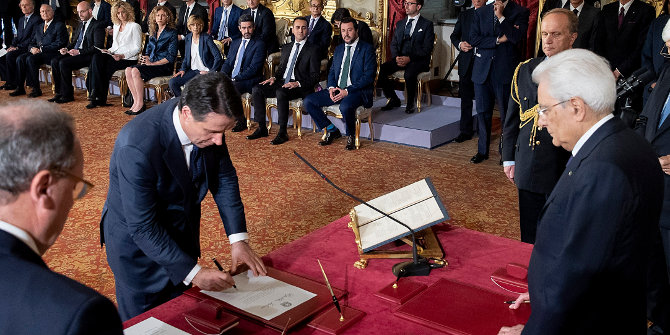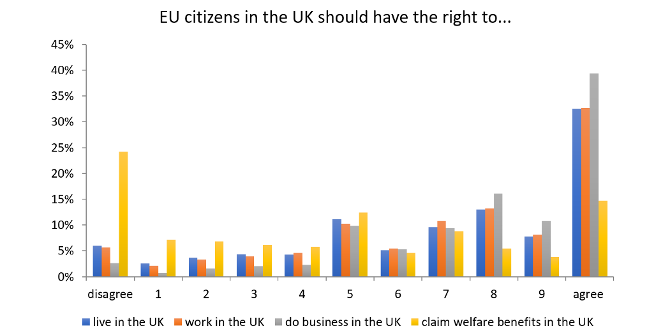A great deal of research has been conducted on the impact of populist parties on democracy, but do populist voters think differently about democracy than the rest of the electorate? Drawing on recent research, Andrej Zaslove, Bram Geurkink, Kristof Jacobs and Agnes Akkerman explain that individuals with populist attitudes are slightly more in favour of democracy, less likely to protest, and more supportive of referendums and deliberative forms of political participation than those who are less populist.
Populist parties are electorally successful. We need look no further than Matteo Salvini’s League in Italy, Fidesz in Hungary, or Podemos in Spain. Many wonder whether the electoral success of these populist parties poses a threat to democracy. This question generally solicits two responses. There are those who feel that populism’s anti-pluralism poses a threat to democracy, while others feel that populism can act as a democratic corrective, bringing those who feel excluded or alienated from politics into the democratic process.
Empirical research on the influence of populist parties finds that right-wing populist parties can affect minority rights, that populist parties (in general) constrain the freedom of the media, and that they pose a challenge to the rule of law and to state transparency. It appears that populist parties can and often do challenge core institutional features of liberal democracy.
As important as these findings are, however, they miss a crucial question. What do individuals who are more populist think about democracy? Are individuals who are more populist less supportive of democracy? Do these same individuals participate more or less in politics?
Populism among individuals
While populism is often seen as a characteristic of political parties, previous research has shown that individuals also have, more or less, populist attitudes. While these are related to voting for a populist party, not all individuals who vote for populist parties have strong populist attitudes nor do all individuals with strong populist attitudes vote for populist parties. In the remainder of this article we will use the term ‘populists’ for individuals with stronger populist attitudes.
Populists favour democracy
Populists are often associated with authoritarian and anti-democratic sentiments. If this were the case, we would expect populists to be unsupportive of democracy. However, recent research from the Netherlands finds that, in fact, populist are slightly more (not less) in favour of democracy than individuals who are less populist.

Matteo Salvini speaking at the European Parliament in 2017, Credit: © European Union 2017 – European Parliament (CC BY-NC-ND 4.0)
Should we be surprised? Not really. After all, populism is about the unconstrained sovereignty of the people. Populism is ultimately about political representation. For populists, political representation is based upon the idea that there is a general will and that this general will must not be constrained by elites. The sovereignty of the people is, of course, also an integral part of any democracy. As such, as Margaret Canovan states, populists see themselves as the true democrats.
Populists are not more likely to vote
Populist want democracy. But do they also want to participate more in politics? Those who view populists as a democratic corrective perceive populism in precisely this light: populist parties can bring voters into the political process. Recent research, however, demonstrates that this is not the case. Individuals who are more populist are not more likely to vote. One explanation is that populists are dissatisfied with party politics. After all, elections are about political parties. The mediated and pluralistic nature of party politics may be distasteful to individuals who are more populist.
Populists don’t protest
Populist citizens are dissatisfied and tend to be prone to anger. Perhaps if they don’t vote more, they may protest more. Again, this appears not to be the case. In fact, the less populist the individual is, the greater the chance he or she will protest. What explains this? It could be due to the association of protest with political extremism. After all, populists see themselves as the silent majority. Or, perhaps, the pluralist nature of protest politics collides with the monism of populism.
Populists want the people
If they are supportive of democracy, but they don’t vote or protest more, how do populists choose to participate? The answer appears to be via people-centred forms of political participation. Research from the Netherlands shows that populists are more supportive of both referendums and deliberative forms of political representation, than individuals who are less populist.
Populism and democracy: an ambiguous relationship
Is this support for people-centred forms of political representation genuine? Two conclusions are possible. Populists may intrinsically value the people-centred nature of referendums and deliberative bodies. Of course, this dovetails with the people-centred nature of populism. However, it is also possible that when push comes to shove, populists will eventually become frustrated with referendums and deliberative forms of participation, as has occurred with political parties. In either case, populism is not per se a threat to democracy, but it does pose a challenge to its current manifestation.
For more information, see the authors’ accompanying article in West European Politics
Please read our comments policy before commenting.
Note: This article gives the views of the authors, not the position of EUROPP – European Politics and Policy or the London School of Economics.
_________________________________
 Andrej Zaslove – Radboud University
Andrej Zaslove – Radboud University
Andrej Zaslove is Associate Professor at the Department of Political Science, Institute for Management Research, Radboud University.
–
 Bram Geurkink – Radboud University
Bram Geurkink – Radboud University
Bram Geurkink is a PhD candidate at the Department of Economics, Institute for Management Research, Radboud University.
–
 Kristof Jacobs – Radboud University
Kristof Jacobs – Radboud University
Kristof Jacobs is Associate Professor at the Department of Political Science, Institute for Management Research, Radboud University.
–
 Agnes Akkerman – Radboud University
Agnes Akkerman – Radboud University
Agnes Akkerman is Professor of Labour Market Institutions and Labour Relations at the Department of Economics, Institute for Management Research, Radboud University.






The conclusions that
“populist are slightly more (not less) in favour of democracy than individuals who are less populist.”
….comes as no surprise to those of us accused of supporting “populism”.
Surely this article is just confirming that those who say:
“Populists are often associated with authoritarian and anti-democratic sentiments.”
….are either fools or knaves ?
Fools ?
How many “accusers” repeating this refrain have ever met a supposed “populist” ?
If analysis by Remain campaigner James Kanagasooriam counts for much, very few.
And in the USA too.
https://www.theguardian.com/commentisfree/2019/jul/21/democrats-republicans-political-beliefs-national-survey-poll
Knaves ?
More likely, “Populist” is an intended slur by activist opponents and commentators – repeated by trusting supporters.
Maybe “Populist” turns out to be a badge of honour – NOT a slur !
“Empirical research on the influence of populist parties finds that right-wing populist parties can affect minority rights, that populist parties (in general) constrain the freedom of the media, and that they pose a challenge to the rule of law and to state transparency. It appears that populist parties can and often do challenge core institutional features of liberal democracy.”
I agree that populism threatens the rights of minorities as we want more direct democracy which favours the largest group. That’s evident. I can also understand how the will of the people could undermine the rule of law as we would rely more on moral perception and emotion in decisionmaking rather than on strict procedures founded in laws.
However, I don’t agree with the other two unfounded “empirical findings”. If anything the opposite is true. Populism is about more transpancy and freedom of speech, including that of various media.